EXCLUSIVE: Crisis in the Caribbean. New Forever War on Drugs?
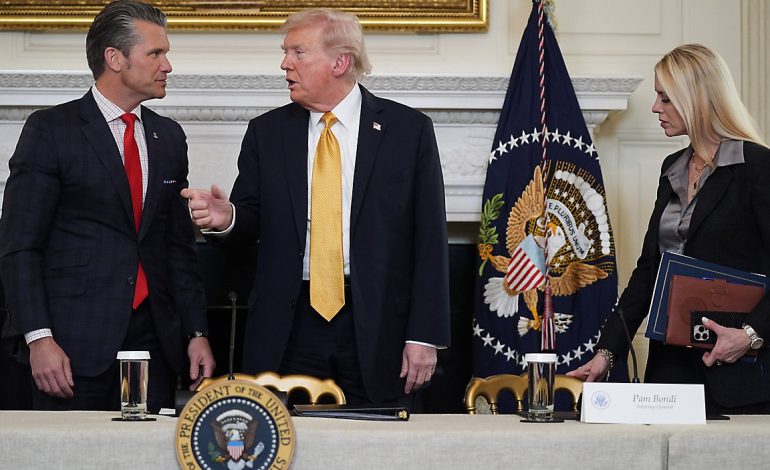
For decades, Washington and Caracas have played a dangerous game of ideological chicken — one that has now turned from icy hostility into open confrontation. What began as a slow diplomatic unraveling has exploded into a standoff that could redefine US engagement in Latin America for years to come.
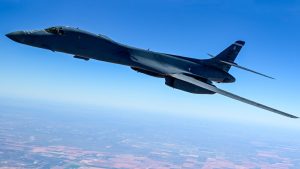
As tensions rise, US B-1 bombers fly near Venezuelan airspace, President Donald Trump promises to “end the narco-state once and for all,” and Caracas vows to resist “imperialist aggression.” The question many are now asking is simple but chilling: are the United States and Venezuela on the brink of war?
The collapse of US–Venezuela relations didn’t happen overnight. Once Latin America’s wealthiest democracy and a steady oil supplier to the US, Venezuela’s fortunes began to unravel under Hugo Chávez’s “Bolivarian Revolution” and his combative stance toward Washington. When Chávez’s successor Nicolás Maduro took power in 2013, years of economic mismanagement, repression, and sanctions followed.
By 2019, the US had recognized opposition leader Juan Guaidó as Venezuela’s rightful president, slapping sanctions on PDVSA, the state oil giant, and freezing billions in assets. The Biden administration in turn experimented with conditional diplomacy, offering limited sanctions relief for promises of democratic reform. Those talks died quietly, replaced now by the Trump administration’s new hardline strategy that fuses anti-Maduro politics with a militarized “anti-drug” crusade.
Trump’s Secretary of State Marco Rubio — an old Venezuela hawk — declared in early October that “Maduro’s time is up.” The US embassy in Caracas remains shuttered, and the State Department’s travel advisory bluntly warns:
“Do not travel to Venezuela for any reason.”
Adding fuel to the fire, opposition leader María Corina Machado—long exiled from Venezuela — was nominated for the 2025 Nobel Peace Prize for her “nonviolent struggle for democracy.” Caracas dismissed it as Western propaganda, while Maduro accused Norway of “abetting regime change.”
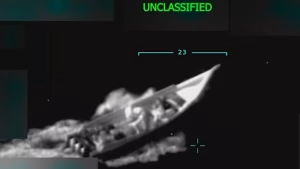
Now, as US bombers circle the Caribbean, both nations are trading threats that sound alarmingly like pre-war posturing.
The Trump administration has justified the Caribbean escalation as part of its broader campaign against international drug networks. Washington claims Venezuela’s military and intelligence apparatus, particularly the Cartel-de-los-Soles, has facilitated cocaine shipments across the Caribbean.
According to The New York Times, one of the most controversial incidents came when a US drone strike destroyed a suspected smuggling vessel near Trinidad and Tobago, killing several Venezuelan nationals. The White House insists the strike targeted a narcotics convoy tied to the Colombian rebel group ELN.
Henry Ziemer, Associate Fellow with the CSIS Americas Program, who runs a blog focusing on security policy in the Americas, told Wyoming Star that the “official” rationale remains counter-narcotics — but cautioned against taking that at face value:
“While escalating military tensions in the Caribbean have raised reports that the United States is considering regime change in Venezuela, officially, the rationale for the ongoing campaign is one of counter-narcotics… Notably, it is highly unlikely that any of the boats the United States has struck to day were carrying fentanyl. The synthetic opioid responsible for tens of thousands of overdose deaths is primarily produced and smuggled in from Mexico, using precursor chemicals often shipped from China. By contrast, cocaine remains the drug of choice smuggled from countries like Colombia and Venezuela. Furthermore, much of this cocaine is in fact destined for Europe, where it fetches an even higher street price than in the United States. The Trump administration therefore seems to be conflating fentanyl and cocaine to an extent in its rationale regarding the ongoing counternarcotics campaign.”
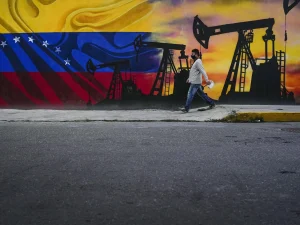
In other words, Washington’s justification may be broader than the actual threat. The US is fighting cocaine traffickers, not fentanyl smugglers — most of whom operate out of Mexico and Asia. Yet the political optics of a ‘war on drugs’ have proven convenient for an administration eager to project toughness abroad.
Underneath the rhetoric lies a deeper economic story. Venezuela’s fragile economy, already gutted by sanctions and mismanagement, is teetering on collapse once again. Oil production — its lifeline — has recovered slightly due to private partnerships, but renewed US sanctions and military tensions threaten to undo those gains.
CNN reports that Venezuelan citizens fear another wave of shortages and price hikes as foreign investors flee and trade routes tighten. Inflation is rising again, and the bolívar is losing ground. For a nation that once sat atop the world’s largest oil reserves, the situation is bleak.
Jose Enrique Arrioja, managing editor of Americas Quarterly, told Wyoming Star that a US-Venezuela clash could devastate the region’s fragile balance:
“Even as recent events may point to a moment of more decisive actions against Maduro’s regime, the odds of an open confrontation between the US and Venezuela are minimal. While President Trump has admitted to “being at war” with drug cartels as terrorist organizations, the argument doesn’t offer enough ground or justification for the US to embark on open aggression. On the other hand, Venezuela has never been involved in a full-scale war as a sovereign nation, which by definition also cements the argument for a diplomatic solution to the current crisis… However, such a move will set a dangerous geopolitical precedent in the Western Hemisphere and beyond.”
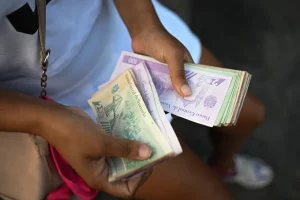
A woman counts Venezuelan bolivar bills to buy food at the Quinta Crespo market in Caracas on September 30, 2025 (Federico Parra / AFP / Getty Images)
He added that any escalation would “heavily impact Venezuela’s fragile manufacturing sector” and possibly “halt consumption altogether.” For the US, regime change could open doors for American energy firms, but only if Venezuela transitions to a new government — a big “if” in today’s reality.
The crisis has also fractured Latin America’s political landscape. Nowhere is that more evident than in Colombia, where President Gustavo Petro has traded public insults with Trump over the past week.
After Trump called Petro “a drug leader” and threatened to cut off aid, Petro accused the US of “imperialist aggression” and called for a joint Venezuelan-Colombian defense pact. That comment only inflamed tensions further. According to Reuters, Trump privately told aides he would “end all payments” to Colombia if Petro continued to “side with cartels.”
As Al Jazeera reported, Petro’s leftist government is now caught between appeasing its powerful northern neighbor and maintaining solidarity with fellow Latin American nations skeptical of US military action.
Ziemer points out that Petro’s record doesn’t help: coca cultivation in Colombia has reached historic highs under his administration, and his peace talks with armed groups have faltered. Still, “it does not seem accurate,” Ziemer says, “to characterize Petro and Maduro as fellow travelers in the drug trade.”
Meanwhile, regional powers like Brazil and Mexico have called for calm. The UN Human Rights Office also weighed in, with experts condemning Washington’s “coercive intervention” and warning of grave humanitarian consequences if conflict expands.
Behind the political noise, the US military footprint in the Caribbean has quietly expanded. The Wall Street Journal confirmed that B-1B bombers recently flew near Venezuelan airspace in a “show of force,” though Trump later denied the operation’s intent was to provoke war. Navy ships have been replaced continuously, suggesting a long-term mission.
Colonel (Ret.) Mark F. Cancian, a senior adviser with the CSIS Defense and Security Department, interprets this as a sign of escalation:
“Three things have changed… An alleged drug boat was attacked in the Pacific, indicating that the operation has become broader than just the Caribbean… Navy ships in the Caribbean have been replaced when they return to port. That indicates a continuing operation, not one that will wind it down soon. The possible escalation comes from President Trump’s statements that he might attack targets ashore.”
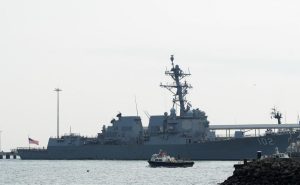
Analysts say this combination — naval presence, bomber deployments, and intelligence assets — looks less like a limited operation and more like the buildup to something larger.
But there’s a problem: legality.
Lieutenant Colonel (Ret.) Geoffrey S. Corn, the George R. Killam Jr. Chair of Criminal Law and Director of the Center for Military Law and Policy at Texas Tech University School of Law, Distinguished Fellow at JINSA Gemunder Center for Defense & Strategy, and Center for Ethics and the Rule of Law Advisory Council Member, a leading expert on military law, argues that the campaign lacks legal grounding:
“I do not believe these attacks are legally justified under either international or domestic law. The administration asserts it is engaged in an ‘armed conflict,’ which is the international terminology for what in common sense terms means war. An armed conflict may occur against an organized non-state armed group, like al Qaeda or ISIS. But it requires credible indications that the group is engaging in ‘hostilities’ against the US or our assets abroad… Absent such a situation, the State is obligated to respond with law enforcement authority… The government’s effort to draw an analogy with al Qaeda is fundamentally flawed because, unlike al Qaeda, the intent and objectives of drug gangs are not to inflict death and destruction in the US or on our forces abroad. There is no dispute that illegal drugs do kill too many Americans, but that is not the goal of these groups.”
If the US proceeds with strikes on Venezuelan soil, Corn warns, “it opens the door” to a wider conflict, as Venezuela may retaliate militarily:
“The administration is asserting that Tren de Aragua is engaged in an ‘armed attack’ against the US, triggering the President’s right to use military force in self-defense. It opens the door to the assertion that the US is legally authorized to attack this enemy in Venezuelan territory because Venezuela is ‘unable or unwilling’ to prevent them from operating out of its territory. This is not a new theory — it is the basis we used to justify attacking Osama bin Laden in Pakistan.”
Colonel Cancian points out an attempt to master at least a level of formal justification for the strikes:

“[Trump] said that he might go to Congress for authorization to strike drug cartels on land. A congressional authorization for the use of force (often called an AUMF) would ease, though not eliminate, criticisms about the lack of a justification for the use of lethal force. However, the president claims that his powers as commander in chief under Article II are sufficient, so he may not go to the effort of engaging Congress.”
Meanwhile, Caracas is on high alert. Venezuela’s Defense Minister Vladimir Padrino vowed any CIA or special operations “will fail.” The country’s military has been repositioning along the coast, and pro-Maduro militias have mobilized in key port cities.
Dr. Robert Evan Ellis, Senior Non-Resident Fellow with the Center for Strategic and International Studies, says the US has a broader strategic goal:
“I believe President Trump is committed to ending the strategic threat to the US homeland presented by Cartel de los Soles and the Nicholas Maduro-led criminal franchise… The Joint Task Force and US forces currently assembled in the Caribbean are simultaneously taking action to stop current drug shipments and deter future ones, but also to induce the Venezuelan military and other leadership to take matters into their own hands, to act in their own self-interest by putting an end to the use of their territory in ways that threaten and harm the US… The US, of course, is already engaged in ongoing lethal strikes and military operations against the Cartel-de-los-Soles, and the President has publicly authorized the use of the CIA to support those objectives… As the President has indicated, if the Venezuelan military does not take matters into their own hands, it is likely that there will be an expansion of US activities involving limited land strikes involving precision munitions and possibly special operations forces against cartel leadership targets and drug facilities on land, possibly escalating to the previously described major, simultaneous U.S. operation to remove the Cartel de los Soles leadership, possibly in late November or early December.”
Such an operation, he says, would mirror Israel’s recent strikes on Iranian assets: short, decisive, and without “boots on the ground.”
With tensions escalating daily and no clear off-ramp, the US faces a moment of truth: press forward militarily or pull back toward diplomacy. Jose Enrique Arrioja puts it bluntly:
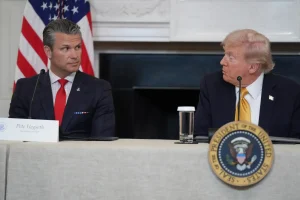
“The clock is ticking not just for Maduro, his future, and those who are part of his inner circle, but also for the Trump administration to declare victory/win in this novel engagement to try to restore democracy in Venezuela while protecting Americans at home.”
For now, Washington insists it is fighting cartels, not countries. Caracas insists it’s fighting for sovereignty, not survival. But history suggests that once bombs start falling, the line between the two can vanish overnight.
Correction: The quote by Dr. Robert Evan Ellis has been updated.



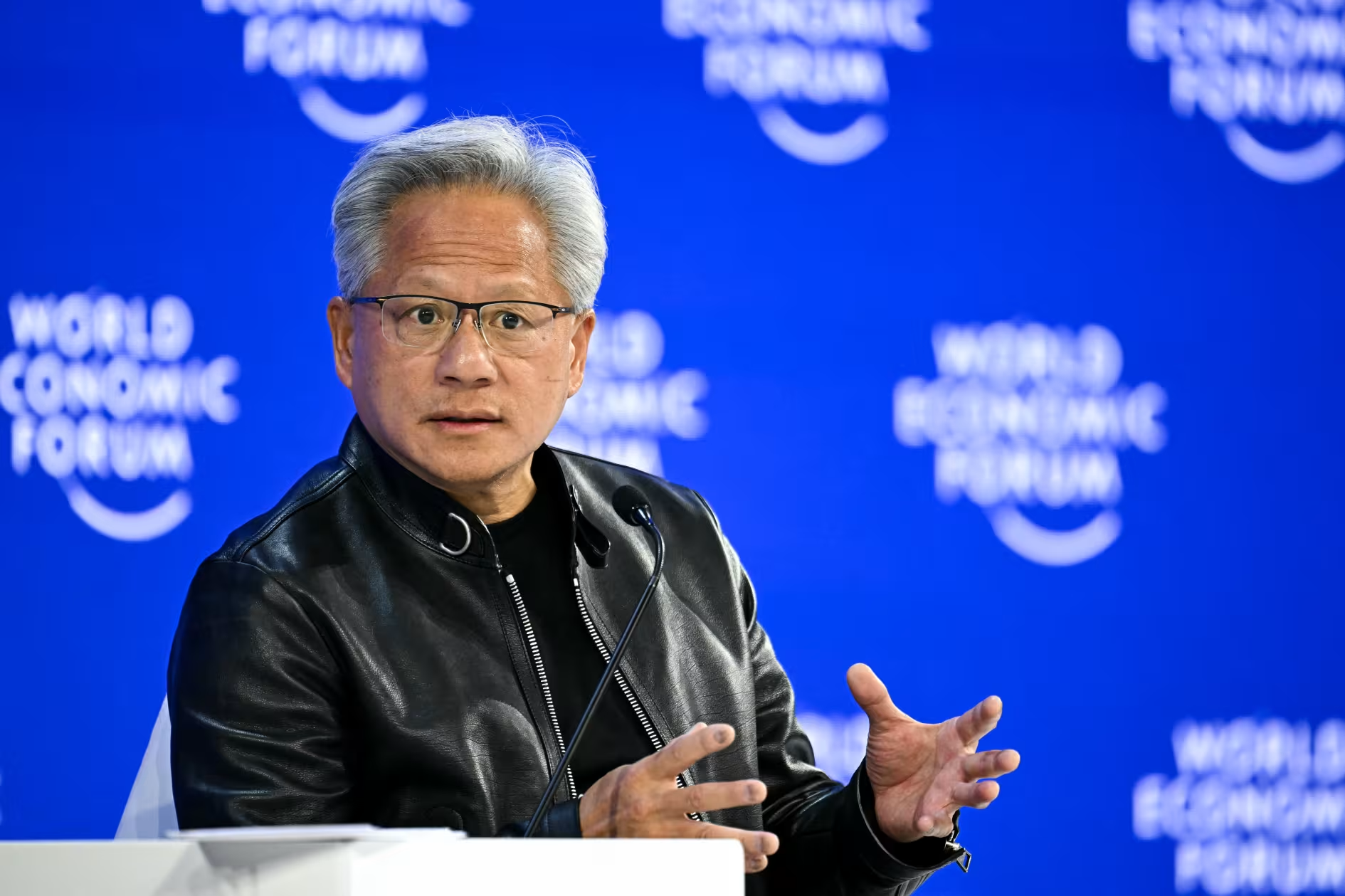





The latest news in your social feeds
Subscribe to our social media platforms to stay tuned